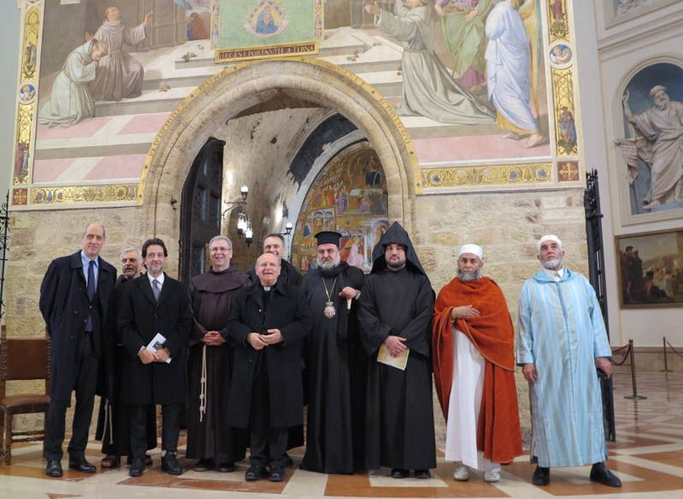The eight centuries of the Franciscan presence in the Holy Land were at the heart of the international conference with the theme of “The dialogue between cultures and religions in the promotion of peace: 800 years of the Franciscan presence in the Holy Land,” which was held in Italy on December 21 and 22. Organized by the Italian Ministry of Foreign Affairs and International Cooperation, the Observatory on Religious Minorities in the World and Respect for Religious Freedom, the Custody of the Holy Land, the Theological Institute of Assisi and the Pontifical Antonianum University, the conference lasted for two days and took place in two very meaningful places. The first day took place in Rome, the heart of Christendom, and the theme was “From St. Francis to Pope Francis: prophecy of a reconciled world.” The second day took place in Assisi, the heart of the Franciscan Order, and the theme there was “Franciscanism in the Holy Land, from its origins to contemporary times. Words and gestures.”
The Custos of the Holy Land, Fr. Patton, during his speech at the conference in Rome, pointed out that St. Francis overturned the idea of the homo hominis lupus, that “man represented a wolf for other men.” The concept was born with Plautus, in the third century B.C., was made famous by the philosopher Hobbes in the seventeenth century, and was re-launched in the contemporary era with Samuel Huntington’s Clash of Civilizations. “Instead St. Francis insisted,” recalled Patton, “that in front of a man there is always a brother ‘even when he is an adversary, he is a brigand or he professes a different faith. The enemy is only inside of ourselves,’ the saint from Assisi would say.” Since then, the Franciscans first and then the Custody of the Holy Land, formally established by Pope Clement VI in 1342, have always had a role of inclusive “brotherhood,” characterized by respect for multiculturalism.
“Commemorating the 800 years of the Custody of the Holy Land,” said Italian Foreign Minister Angelino Alfano, “represents an act of foreign policy. Dialogue is never obvious and it is not always easy, but it is the only possible way [forward]. Opportunities for dialogue, when we want to talk, are always there.”
“Federico II and Al Malik succeeded for a few decades in realizing the utopia of a truly open Jerusalem,” said historian Franco Cardini. In 1229, the walls were even dismantled. This was a utopia that did not last for long due to subsequent invasions, but which are still ‘very relevant.’”
In concluding the first part of the conference, Cardinal Sandri reiterated how the Franciscans represent a prophetic force, which “turns diversity into a richness.”
“Their commitment involves not only the sons of St. Francis, but all those who aspire to peace, because from Jerusalem, peace comes to each one of us.”
In Assisi, the conference began on the morning of the December 22 on the theme “Franciscanism in the Holy Land, from its origins to contemporary times. Words and gestures,” with speeches by Fr. Mauro Gambetti, the guardian of the Sacred Convent, Fr. Giulio Michelini, Dean of the Theological Institute of Assisi, and Mons. Domenico Sorrentino, the bishop of Assisi-Nocera Umbra-Gualdo Tadino. The guardian of the Porziuncola, Fr. Giuseppe Renda, welcomed those present. explaining how Francis, precisely in the small church of St. Mary of the Angels, understood his vocation to be a peacemaker, and how later he was able to experience many graces there, and in the end he left this world as a free man, happy to meet the One who had created him, sustained him and waited for him. “What Francis of Assisi experienced can happen to every human being who opens themselves up to God’s grace,” he said. The speeches and prayers by the representatives of the three monotheistic faiths (Jewish, Muslim and Christian) were followed with the communal recitation of the so-called “Simple Prayer,” which brought the event to its conclusion.


